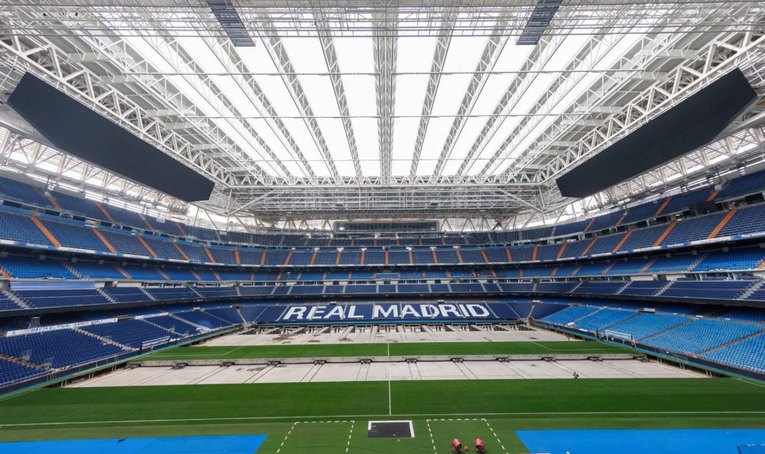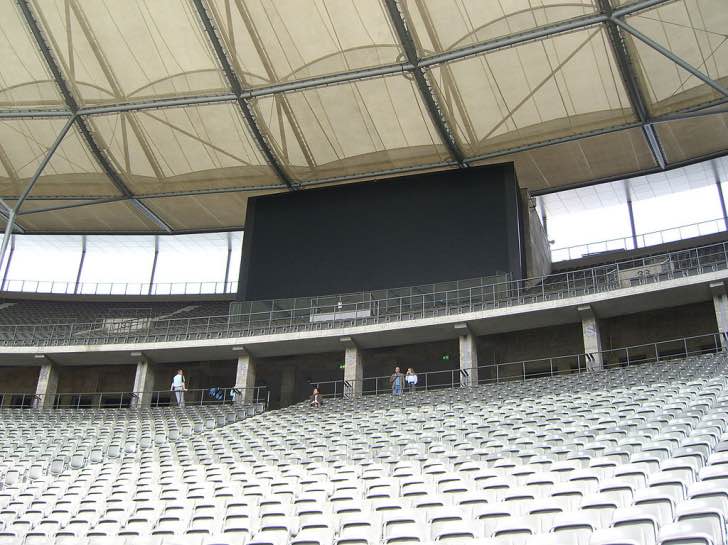
Over the last couple of decades, we have seen a considerable improvement when it comes to football stadiums, with clubs wanting to make the most of technology in order to add significant value to a fan’s experience.
A football match for many supporters is about much more than just watching the sport, but also everything that comes with it; the ‘true matchday drama’ – many have their own routine, whether it is going for a few drinks first, however, in increasing amounts over the last few years, it is the atmosphere that has done the trick for many.
Despite this, there have been some exceptional, ‘old school’ grounds over the years, filled with memories, some of which do not exist anymore, such as Highbury, where Arsenal used to play.
The club was arguably the first to embrace the evolution of a ‘new football stadium’ and at the time in the mid 2000’s when the club embarked on its construction mission for what was named the Emirates Stadium, this was billed as being what would likely be the best of its time when finished.
It didn’t disappoint – having started construction in 2002, it was finally completed four years and £390 million later and it was well worth the wait. Recently there are even talks of upgrading the stadium.
Certainly in the Premier League era, at the time, this was considered the best in the country, if not the world, embracing modern technology to give fans the ultimate level of enjoyment. Of course others have followed over the years, such as the Etihad Stadium (Manchester City) and just recently, The Tottenham Hotspur Stadium, which is considered to have leapfrogged others in terms of innovation to be one of the best right now in Europe.
Views 😍 pic.twitter.com/gOKJTZ4Bmp
— Tottenham Hotspur Stadium (@SpursStadium) September 15, 2024
With that in mind, we have reviewed some of the best innovations that football clubs are adopting in their stadiums now, whether these are new builds or existing ones, while Chelsea are considering a move to a new stadium, with lots of speculation surfacing about what this will involve.
Mobile Tickets
The introduction of mobile tickets at virtually every stadium – even some non-league stadiums, such as York City, has made the process a lot more convenient, suspended waiting times and ensured that fans can get into the stadium, essentially stress free.
Some football clubs even have their own app, whereby fans can simply open the app on arrival at a ticket barrier and see the ticket as soon as they do so, eliminating queueing time.
Super Fast WiFi And Mobile 5G
It is very rare these days to find a football stadium that has poor quality internet and certainly, the new builds, such as Tottenham, have very strong and rapid WiFi connection. This all adds to the overall matchday experience for many fans, allowing them to do things such as check the other football scores during a game, tag themselves on the club’s social media channels (therefore increasing exposure) and also keep an eye on transport times.
Furthermore, football betting is a big part of many fans’ matchday experience and being in the ground itself and seeing it live can help them to make better decisions about making a bet in-play. The availability of the latest WiFi technology helps them to do this.
Next Generation Screen Technology
Many football stadiums now have an abundance of innovative screens that all serve a different purpose; some inside the stadium such as in the hospitality areas are great for displaying prices and menus, some may even provide travel updates (rail, bus and tube), while others are tailored towards the game itself.

Self-Serving Beer Stations
Some stadiums around the world have even started to adopt beer stations where you are able to serve yourself and pay contactless prior to pouring your own beer.
Again seen as part of enhancing a fan’s matchday experience and reducing waiting time at half-time.
Virtual Reality Metaverse
It is understood that Manchester City is one club that is looking to leverage the virtual reality (VR) and Metaverse eco-system. The theory is that fans will be able to create the matchday experience from inside their own home, being able to wear a VR headset which then immerses them in a realistic stadium experience.
The club hopes to become the first in the world to offer this, further illustrating the significant strides that football technology is taking.
VR and AR is said to be something for the future that could transform the way that fans enjoy matches, while offering even more convenience to their matchday and already many options have been explored.
